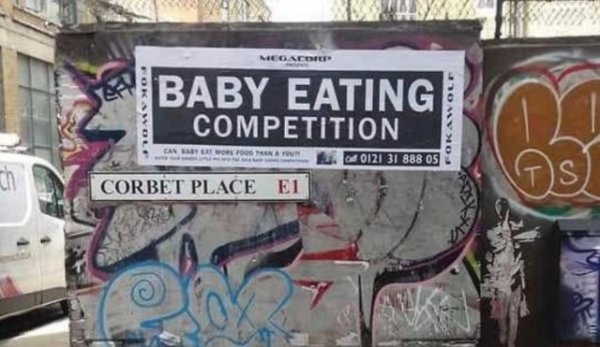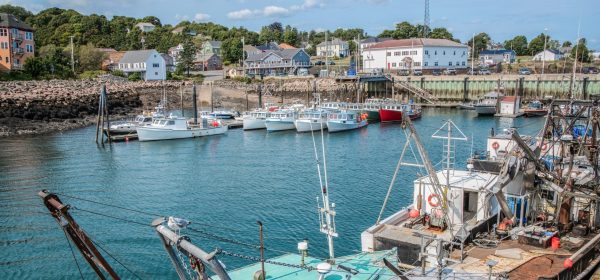social.outsourcedmath.com
Kato wanted his journey to draw attention to the earliest migration of humans from Africa and challenge the racist notion that people should “go back to where they come from”. Viewed as a whole, he said the run had underlined the positive aspects of migration and its potential to “create a more culturally connected and enriched global society”.
His experiences also led him to believe that humanity will prevail over prejudice. “I think that in the future, we will create a world free from racial discrimination,” he said.
“Although it won’t happen in my lifetime, I believe that my efforts and those of others who are dedicated to this cause are laying the foundations for the next generation to build upon.”
However, he admitted it had also reinforced concerns over the “fortress Europe” approach that the EU is pursuing to prevent migrants from Africa moving north.
L'humanité serait-elle tombée sur la tête ? Comment s'orienter dans un monde sans repères, où le bas semble en haut, où le ciel a disparu, où les échelles s'enchevêtrent sans cohérence dans des…imago mundi

This musical instrument is 400,000+ years old and still growing. 🌏 Get exclusive NordVPN deal here ➵ https://NordVPN.com/veritasium It’s risk free with Nor...YouTube

…is proposing executing women who seek an abortion: MAGA Republicans in South Carolina have introduced SC H3537, also known as The South Carolina Prenatal Equal Protection Act. South Carolina…Mock Paper Scissors
Lawrence Weston is a community of several thousand residents in the city of Bristol, in the west of England, and one of the poorest neighbourhoods in the region.
Between 2014 and 2023 a group of determined residents and supporters led a successful campaign to build an onshore wind turbine in the area through their community action group Ambition Lawrence Weston and subsequent sister group Ambition Community Energy.
They did so overcoming great difficulties including a government-imposed, de-facto ban on onshore wind power in England that the UK’s new centre-left Labour government finally ended several weeks ago.
The resulting turbine — a 4.2MW EP115 EP3 unit supplied by German manufacturer Enercon — began producing electricity last year and is already generating money for Ambition Community Energy and the residents of Lawrence Weston.
Now the people behind the project hope to see it replicated elsewhere.
Two of the project's key proponents — David Tudgey and Charles Gamble — believe they have created a model that can be replicated beyond Lawrence Weston.
“A lot of people will say this is a one-off, that it won’t happen again. But they don’t understand me and Charles. We didn’t do it for eight years just for one demonstration turbine [and] what we have codified is the Sustainable Innovative Financial Foundations for Turbines (SIFFFT),” Tudgey, the project development director at Community Power Solutions, told Windpower Monthly.
The pair’s SIFFFT model seeks to build on the solutions they and others came up with to overcome the major challenges they faced with the Lawrence Weston turbine.

This week, we were drawn to stories about determined communities taking their renewable energy futures into their own hands.RTBC Staff (Reasons to be Cheerful)
Link to Patreon — one exclusive video per month:https://www.patreon.com/acollierastroI have merch: https://store.dftba.com/collections/angela-collier00:00 In...YouTube

The world’s most popular flight tracker. Track planes in real-time on our flight tracker map and get up-to-date flight status & airport information.Flightradar24
Ein Auto rast über den Weihnachtsmarkt in Magdeburg – ein Horrorszenario. Auch die Luxemburger Polizei hat die LageEUROPE SAYS (EUROPESAYS.COM)
While this year's biggest 'health' stories were about CEO assassinations, vaccine skepticism and scary viral outbreaks, history was being made in the background. Multiple countries declared victory over age-old afflictions like malaria, leprosy and trachoma, the global campaign against cervical cancer reached a turning point, with widespread HPV vaccination putting humanity on track to eliminate a cancer for the first time, and in places like Gaza and Sudan, health workers achieved the near-impossible, vaccinating millions.
Scientific breakthroughs, from personalised mRNA vaccines to GLP-1 therapies, offered new hope for billions suffering from previously intractable conditions, and we saw world-first treatments for diseases like cancer, diabetes and lupus. Most importantly, healthcare increasingly reached those who need it most, with expanded access to vaccines, treatments, and coverage for people in low and middle income countries. From South Asia's dramatic reduction in child mortality to Africa's unexpected progress on tuberculosis, this year demonstrated that sustained political commitment can change the trajectories of entire nations.

Not everything that happened this year was terrible.Angus Hervey (Fix The News)

Guess what? Popular economic narratives aren’t reliablePaul Krugman (Krugman wonks out)

German health minister calls US billionaire’s intervention weeks before election ‘undignified and problematic’Kate Connolly (The Guardian)

Well, that didn't go quite as he planned.Peter Karleby (Comic Sands)
Birdlife Sverige svarar på Marcus Åslings ledare.Detta är en opinionstext.Tidningens hållning är centerpartistisk.För andra veckan i rad innehållerEUROPE SAYS (EUROPESAYS.COM)